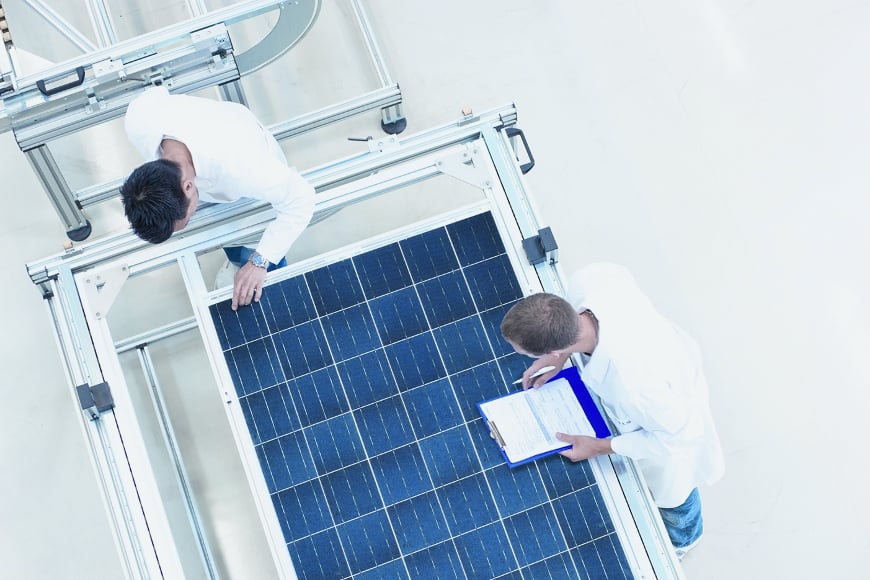
Hanwha Solutions is reportedly considering expanding its investment into US solar production if the newly agreed upon Inflation Reduction Act (IRA) is passed.
According to regional news site Business Korea, Hanwha Solutions, parent company of module maker Hanwha Qcells, which already has a significant presence in the US, is intending to increase its investment into US manufacturing, building on its recently announced plans to invest US$170 million in a 1.4GW module production facility in the US.
Try Premium for just $1
- Full premium access for the first month at only $1
- Converts to an annual rate after 30 days unless cancelled
- Cancel anytime during the trial period
Premium Benefits
- Expert industry analysis and interviews
- Digital access to PV Tech Power journal
- Exclusive event discounts
Or get the full Premium subscription right away
Or continue reading this article for free
If passed, the IRA would be a huge boon for the US PV manufacturing sector by providing solar manufacturing tax credits on modules, wafers, backsheets and polysilicon, among other things.
It has been described as “the best chance the US has had to build a domestic manufacturing industry”.
Hanwha Qcells has been investing in several different parts of its US solar supply chain recently. In July, it landed an agreement with Canadian Premium Sand (CPS) for the commercial offtake of patterned solar glass to support its US module production.
And in March it bought shares in Norwegian polysilicon producer REC Silicon from Aker Horizons, becoming the company’s largest shareholder with a 21.34% stake, in what Aker has said is a “major step in rebuilding the US solar supply chain”.
The deal between the companies is expected to provide REC Silicon with enough capital to restart its operations at the 20,000MT Moses Lake polysilicon facility in Washington during 2023.
The site employs fluidised bed reactor (FBR) technology to produce granular polysilicon, which REC Silicon said uses 90% less power than the traditional Siemens process.
Hanwha Solutions, through its subsidiary Hanwha Qcells, already operates a 1.7GW module factory in the US, which, when coupled with the above 1.4GW facility, would take its US-made module output to 3.1GW.
Elsewhere, Hanwha said it will invest US$3.3 billion in solar and wind technology and intends to create a solar R&D hub in Korea as part of a massive investment strategy focused on several industrial areas.






